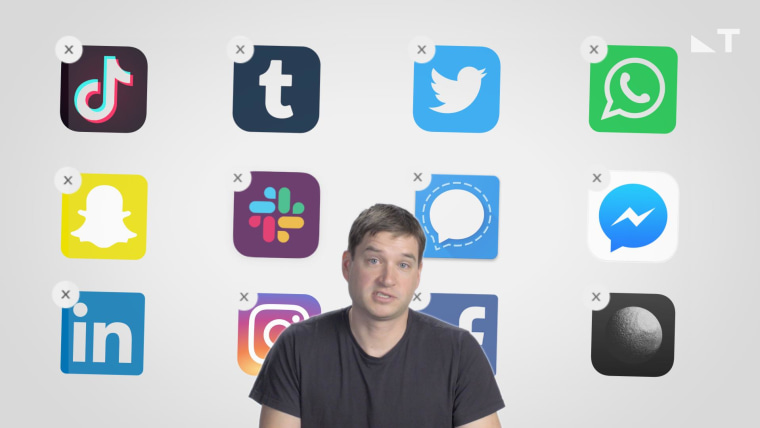I remember listening to the lyrics of the great The Who song “My Generation” as a teen growing up in Dayton, Ohio. I never gave much thought to the lyrics, but the song made a big impression — something about other generations not understanding our struggle, coupled with a yearning to belong to something larger. Whether romanticizing the past or some inflection in societal norms, it at least seems like life was simpler back then. Media meant comic books, movies and arcade games. Video games were on cartridges released by Atari or Nintendo. Our technology did not use data to understand preference behavior or make recommendations to connect gamers globally.
Generation Z never knew a world where the internet did not exist and they have a bewildering array of digital media.
Generation Z, born in 1997 or later, represent today’s teenagers. They never knew a world where the internet did not exist and they have a bewildering array of digital media for entertainment, engagement, connection and communication. Online gaming, streaming media and social media provide endless ways to create, collaborate, inspire and socialize.
However, there is a commensurate downside associated with elevated levels of digital media. Researchers are already worried about the impact of the internet on depression, anxiety, bullying, addiction and feelings of inadequacy. And now, academics and researchers are warning about similar dangers posed by unethical data use, privacy violations and algorithmic bias. Yet, many teens seem largely unaware of current or potential risks (direct or tangential) associated with their increased use of online applications, social media platforms and other web-based services heavily reliant on data accumulation.
With social media networks relying heavily on advertising for revenue, data collection, sharing and usage are vital to the success and growth of these billion-dollar services. Data including personal identifiable information (PII), behavioral data, preferential data, usage data and other types of activities gets assessed, analyzed and used to not only retain and attract users, but also keep users engaged longer in an effort to monetize their activities through hyper-targeted ads.
Now, with a large portion of the world remote as a result of the pandemic, we have seen an escalation in the use of social media. But we are also rethinking our relationship to social platforms. The rise of disinformation on social networks in particular has heightened these concerns.
The biggest issue, in my opinion, is transparency around the risk of data retention, data oversharing and comprehensive data management. Let’s say users delete their social media account entirely; their user data can still live on in the form of tags, posts and mentions. Some platforms allow users to delete their accounts and scrub the data, however that data might have already been repurposed and shared across the open web. Privacy controls become a critical issue as more of these apps rely on data to appeal to advertisers. But as more apps become connected via dominant social networks, in part for convenience, data transfer occurs readily and often invisibly between social platforms.
As data gets shared across online applications, what is the aggregate risk for these users? If a user was simply on Facebook, they might have a good understanding of Facebook’s terms of use, privacy controls and data policies. They would theoretically be able to weigh the utility vs. the risk associated with using the platform. (In practice, I understand that a majority of the population does not read through or even consider these terms or stipulations.) Now, let’s throw in dozens of different terms of use and data policies for commonly used apps, seldom used apps and apps once used but since forgotten. It’s difficult for anyone to understand how all their information disaggregated across multiple platforms and apps might be used to harm them in the future.
As a Gen-Xer, I stand a lot to lose financially, medically and reputationally if my data should be compromised and wind up in the hands of malicious cyber actors. However, such warnings may not resonate in the same way with young people who are not worried about retirement accounts or extensive medical records. Resources and educational materials on digital identity hygiene, privacy, cyberthreats and how to protect yourself online still focus more on my generation. Most of the information created for Gen Z, on the other hand, focuses on how parents can keep their kids safe online. This works to an extent, but as many parents know, teens often find ways around firewalls and blockers.
As many parents know, teens often find ways around firewalls and blockers. For our very online youth, more controls are not the answer.
For our very online youth, more controls are not the answer. Instead, we need more education and dialogue designed for the community it is intended to serve. Teenagers are creating a daily online digital footprint through mentions, tags and posts. The next generation — Generation Alpha, born 2010 and later — has had a digital footprint since birth. We have to recognize the positive impacts — connection, community, support, entertainment and creativity — while discussing potential harms. This can vary from cybercriminals to cyberbullies. It can also be a result of inadvertent activity that exposes users without their knowledge.
Teens have never known a world without data sharing. But this familiarity offers a false sense of security. To puncture it, we need to simplify the complexities associated with online data and digital identity. How do social platforms gather and share data to personalize content, develop differentiated services and connect users? How does an intricate web of third-party data aggregators collect and share data to retarget online users?
Understanding the risk associated with readily available online information and the myriad ways someone might use it (or exploit it), is a complex, dynamic story. Talking about the potential damage to your credit score might not hit the mark for a 17-year-old. Even a discussion on how your social media profile might be perceived by employers and colleges might not have the desired impact for a generation that often seems to value openness over privacy.
Better examples might take a look at the impact of cancel culture, cyberbullying or disinformation. By providing tangible examples that teens can relate to, educators can better draw comparisons and help teens understand the implications of much larger privacy issues, including protections and user rights. And of course, it helps to be authentic — which means understanding the appeal and dynamics of subcultures, trends and the collective power of creative communities.
Through collaboration and engagement, I believe a curriculum can be designed to emphasize safe and sustainable social media use and digital identity management. Hacks, identity theft, disinformation, misinformation and deep fakes are only going to increase in the coming decade. We need all users to help minimize the potential risks of our online lives, an initiative that can help protect my generation, their generation and future generations.
"world" - Google News
January 16, 2021 at 04:48AM
https://ift.tt/3nLh4bT
Teens have never known a world without data sharing, and it's creating a false sense of security - NBC News
"world" - Google News
https://ift.tt/3d80zBJ
https://ift.tt/2WkdbyX
Bagikan Berita Ini
















0 Response to "Teens have never known a world without data sharing, and it's creating a false sense of security - NBC News"
Post a Comment